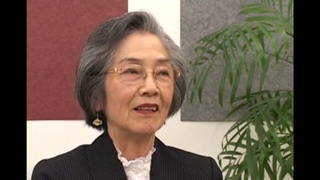Japanese American railroad workers are fired following the bombing of Pearl Harbor
The FBI—my dad, in order to get to his mail job at Great Northern Railroad, had to go under the United Union Pacific, the Milwaukee Railroad tracks. And it was railroad track that came right through into Spokane. Great Northern was a block north of that station, Union Pacific, but Union Pacific was all on girders. And they came in, you had to walk up to the railroad station, and underneath, we had to walk through to get to the employment, railroad. And the FBI says, “No, you can't do that. You can't be caught walking under a bridge, we're afraid you might bomb it.” And so they fired every one of the Japanese, and there were a couple of Italians working there, Felice and Mancheny, Clark, were working there. And they couldn't handle, even with the new, whoever they hired for the mail, the mail was all screwed up, it was going all over the country instead of to the right destination. So after, I think, thirty days, they had to rehire all the Japanese again, so the mail started to run in the direction they were supposed to be going.
Date: March 15 & 16, 2006
Location: Washington, US
Interviewer: Megan Asaka
Contributed by: Denshō: The Japanese American Legacy Project.











